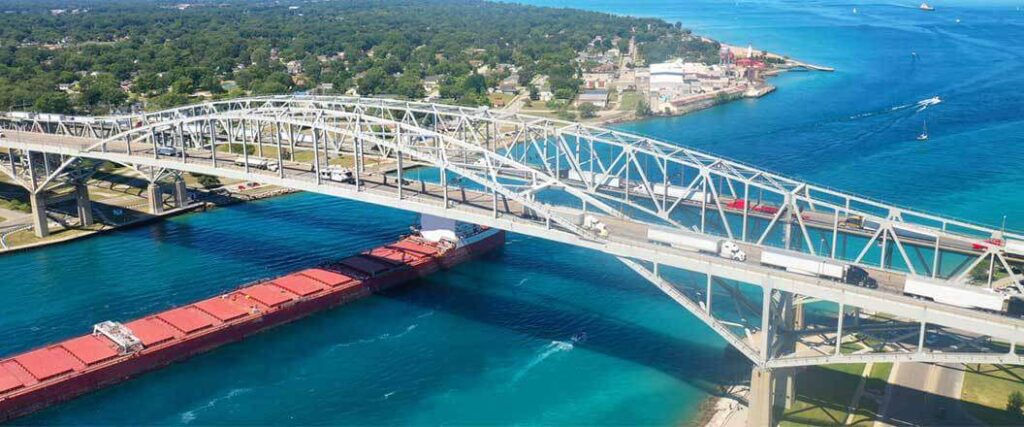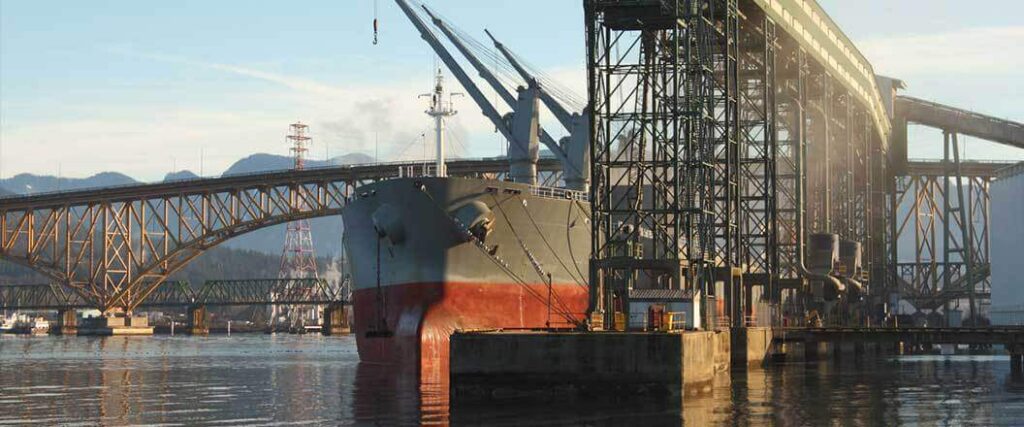
Canadian customs brokerage services are the lifeline that so many importers use when shipping goods into the Great White North. Particularly if you’re a new importer, a customs broker by your side can make a world of difference.
According to the Canada Border Services Agency (CBSA), using a qualified Canadian customs broker is crucial when importing into Canada. A Canadian customs brokerage expert possesses the knowledge and expertise to navigate complex regulations, ensuring smooth cross border transactions and avoiding costly errors.
We’ll explain the importance of using a customs broker when importing into Canada, the brokerage fees you can expect, and all the benefits they can provide for clearing your shipment successfully.

A customs broker in Canada is a licensed professional who acts as a bridge between importers and government authorities like the CBSA. They specialize in customs regulations, documentation, and procedures required for importing goods into the country.
Canadian customs brokers are skilled in preparing and submitting the necessary forms for imports into Canada.
These include important documents such as:
They can also calculate and advise on the applicable tariffs, duties, and taxes for goods entering Canada. These are based on the Harmonized System (HS) classification and other relevant factors.
A customs broker is not legally required to import goods into Canada, however, it is highly recommended. The process of shipping goods across the border may seem straightforward, but the intricate maze of Canadian import regulations can quickly turn a seemingly simple process into a messy ordeal.
This is where the expertise of a customs broker comes into play. Let's delve into why partnering with a customs broker is often essential when shipping north of the border.
Canadian import regulations are made up of many parts: tariffs, duties, taxes, trade agreements, and compliance requirements. Navigating these regulations requires a deep understanding of the rules.
Regulations vary based on factors like:
An oversight in any of these areas can lead to costly consequences, including unexpected fees, delays, or even legal issues.
Enter the Canadian customs broker, a seasoned guide of international trade. Here's how their expertise can make a world of difference:
A reputable broker will keep in touch, so importers stay informed during critical times. When goods are on a tight schedule, real-time updates on the status of a shipment make a difference. Each benefit plays a part in making sure importers can keep up a successful business.
The potential for mistakes is easily the number one reason that importers need a customs broker. One tiny error on a customs declaration can lead to major financial and legal complications.
Customs brokers act as a safety net against mistakes that could result in fines or seizure of your goods. They understand the nuances of compliance and can protect you from unintentional breaches.
Delays can ripple through your supply chain. They negatively affect your operations and relationships with clients. The right broker can help avoid such pitfalls and streamline the import process. This reduces the risk of unexpected holdups.
Again, while you're not legally required to use a customs broker to ship to Canada, the value they bring to the table is undeniable. From deciphering complex regulations to preventing costly blunders, their expertise can save you time, money, and headaches.

Understanding the landscape of customs brokerage fees is essential when importing into Canada. These fees include a variety of factors that contribute to the total cost of your imports, ultimately allowing for customs clearance.
It’s worth taking a closer look at:
Let's break these down to show you how they influence customs clearance fees.
A broker’s fees can depend on the exact services they end up providing. In general, customs brokerage fees can be categorized into several key items.
These include:
Whether importers end up being charged all or some of these fees depends on what services they need a customs broker to provide. The more hands-on the broker needs to be, the more importers can expect to be charged for.
Customs brokerage fees are calculated based on various factors, including the type of goods being imported, their value, and the complexity of the shipment.
The most common influencing factors are:
The process of confirming things like HS codes or tax status isn’t always straight-forward. When products are sourced from different materials, some of which may come from different nations, it can involve communicating with different agencies.
The more complex a product is, the higher you can expect the fees to be.
In short, Canadian customs brokerage fees are made up of a wide array of possibilities. You need to understand the breakdown of these fees and how they're calculated. The role of duties and tariffs and the factors that influence their price differences is also necessary.
This is why the right customs broker is a great source for importers aiming to make informed decisions about their international trade endeavors.
Read up on NAFTA vs the USCMA to find out how different trade agreements impact costs.
Duties and tariffs are a significant component of customs brokerage fees that can vary greatly. They're calculated as a percentage of the declared value of the goods being imported.
The specific duty rate varies depending on the nature of the goods and their country of origin. Some goods may be subject to preferential tariff rates due to trade agreements between Canada and other countries.
Even if a nation has preferential status or a free trade agreement, these may be in the form of drawbacks or refunds. This means there would still be an initial payment necessary.

At USA Customs Clearance, we handle more than just imports into the U.S. With experienced Canadian Customs Brokers on staff, we can handle your Canadian customs brokerage with ease.
Remember that a customs broker isn't just an option – they're your passport to a smoother,
more successful import journey.
Schedule a personalized, 1-on-1 consultation with one of our licensed brokers or fill out a brokerage request quote to get access to our full suite of customs services.
When you need to import into North America, we’re here to help. If you have more questions, give us a call at (855) 912-0406.
 Copy URL to Clipboard
Copy URL to Clipboard
Add your first comment to this post